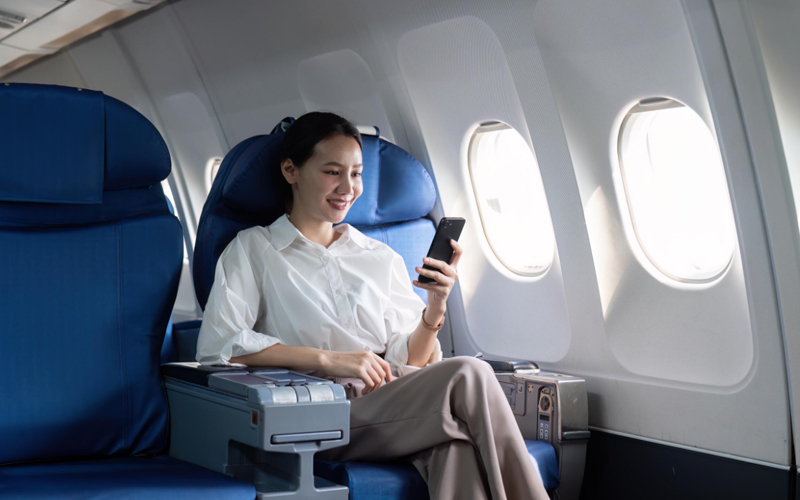Accessibility in hotels and resorts is a business advantage that elevates guest experiences, builds brand trust, and opens doors to untapped markets in the hospitality industry. As the hospitality sector adapts to shifting guest demographics and expectations, accessibility has emerged as a core pillar of excellent service. This article explores the strategic role of accessibility in the hospitality industry, the framework of ADA compliance in hotels, and how global operators can align with evolving hotel accessibility standards.
The framework of ADA compliance in hotels
The Americans with Disabilities Act (ADA) remains one of the most well-known and comprehensive frameworks for accessibility legislation globally.For hotel groups operating internationally, aligning operations with the most stringent standards, such as those outlined in ADA regulations for hotels, often sets a global benchmark for consistency, excellence, and risk mitigation.
Compliance with ADA regulations involves a broad set of guest-facing and operational touchpoints. Common standards across global frameworks include:
Accessible entrances and routes
All public entrances must be accessible, with ramps, lifts, and tactile guidance systems. Internal pathways such as corridors and public circulation areas must accommodate wheelchairs and other mobility aids.
Guest rooms
A designated portion of rooms must be accessible, typically including wider doorways, adjustable beds, roll-in showers or accessible baths, grab rails, and emergency call systems. For guests that are hard of hearing, visual alarms and communication aids are also standard.
Public and recreational areas
Facilities such as receptions, restaurants, swimming pools, business centres, and gyms must be accessible. That means dropped counters, accessible seating layouts, pool lifts, and accessible locker rooms.
Digital and communication accessibility
Hotel websites, booking engines, and digital kiosks must be accessible to guests with visual, hearing, or cognitive impairments. Globally recognised standards such as the Web Content Accessibility Guidelines (WCAG) help ensure digital interfaces are usable by all.[2]
The business value of accessibility
For business leaders, compliance is only the baseline. Accessibility represents a powerful growth opportunity. Globally, more than 1.3 billion people live with some form of disability, according to the World Health Organisation. These individuals represent a substantial share of the travel market, often accompanied by family, friends, or caregivers, multiplying potential guest revenue.
Travellers with disabilities tend to show higher loyalty and spend more when their needs are met. Positive experiences boost reviews, referrals, and retention, directly enhancing RevPAR and brand equity. Accessible hospitality is a key differentiator in delivering excellence for every guest.
Navigating regulatory updates and uncertainty
Accessibility standards are well-established across many regions, yet interpretation and enforcement can vary significantly. Recent shifts, such as the withdrawal of non-binding guidance on online reservations, have introduced regulatory ambiguity in some markets, while others are broadening legislation to include digital platforms and hospitality services. Parallelly, ageing populations and growing domestic tourism are driving rapid policy evolution. Some regions have long-standing frameworks, while others are investing in accessible infrastructure as part of wider development goals.
This dynamic regulatory environment requires multinational hotel operators to remain agile, investing in legal counsel, local expertise, and regular cross-market audits to ensure sustained compliance and minimise legal and reputational risk across regions.
Best practices for proactive compliance
Leading hospitality brands should take proactive steps to go beyond minimum compliance. Regular property audits are critical for identifying and addressing barriers that may develop over time or be overlooked during renovations. This includes everything from malfunctioning automatic doors to loose carpeting or unclear signage.
Employee training is another essential element. Frontline staff should be well-versed in hotel accessibility standards and know how to assist guests with varying needs respectfully and effectively. Empowering your team to deliver inclusive service reflects a broader organisational commitment to equity.
Guest feedback also plays a crucial role. Actively seeking input from guests with disabilities helps pinpoint gaps in service and facilities while showing that the hotel genuinely values every guest’s experience.
Leveraging technology to enhance accessibility
Technology offers scalable ways to meet and exceed accessibility expectations. Globally, hotels are adopting digital innovations that make properties more inclusive without sacrificing luxury or operational efficiency.
Web accessibility, guided by WCAG 2.1 or higher, is essential to ensure that guests with vision or hearing impairments can independently book and manage their stays online. Voice-controlled in-room automation, AI-powered concierge services, and mobile check-in/check-out offer added autonomy and convenience.
How can Infosys BPM help with ADA compliance?
Establishing a global accessibility strategy backed by KPIs, governance frameworks, and executive ownership ensures a consistent guest experience regardless of region. It also signals to investors, partners, and customers that the organisation is committed to inclusive growth. By partnering with Infosys BPM, hotel brands can build a global accessibility strategy powered by legal and regulatory compliance services, contract management, and risk mitigation.








